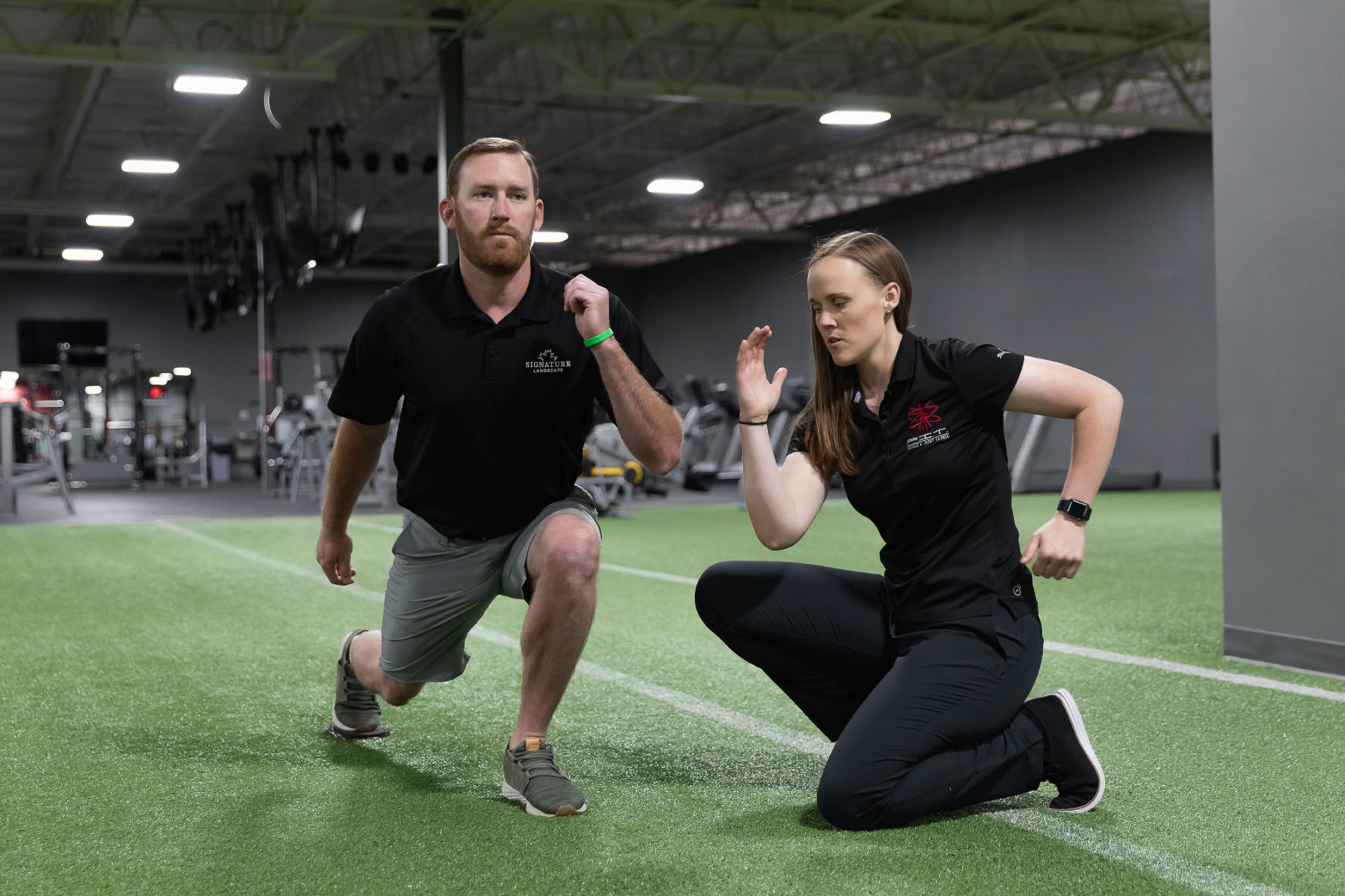
When surgery is your best course of treatment for an injury, it’s important to find a physical therapist that can get you back to full function afterwards.
Post-Operative Physical Therapy in Kansas City
Post Surgical
Treatment
If you have suffered an injury that requires surgery, physical therapy is in your very near future. Whether it is a rotator cuff repair, ACL repair, or a joint replacement, the doctors at F.I.T. Muscle & Joint Clinic are highly skilled in guiding you through a post-surgical treatment plan to give you the best results after surgery. Your physical therapist will work closely with your surgeon to make sure you are progressing through the surgical protocol and to communicate any problems that may arise along the way. Following any surgical intervention, physical therapy can help you regain your range of motion, normal tissue tension, and strength of the body part to leave you feeling better than before.
What It Treats
Post-operative physical therapy can help with a variety of surgeries, including but not limited to:
- Joint replacements (knee, hip, shoulder)
- Shoulder labral repairs
- Rotator cuff repairs
- Broken bone that require fixation including, wrists, arms, and ankles
- Hip labral repairs
- Gluteal tendon repairs
- ACL reconstructions (and other ligament repairs)
- Meniscus repairs and meniscectomies
- Quadriceps tendon repairs and patellar tendon repairs
- Medial patellofemoral ligament reconstruction
- Lateral release
- Iliotibial band release
- Achilles tendon repairs
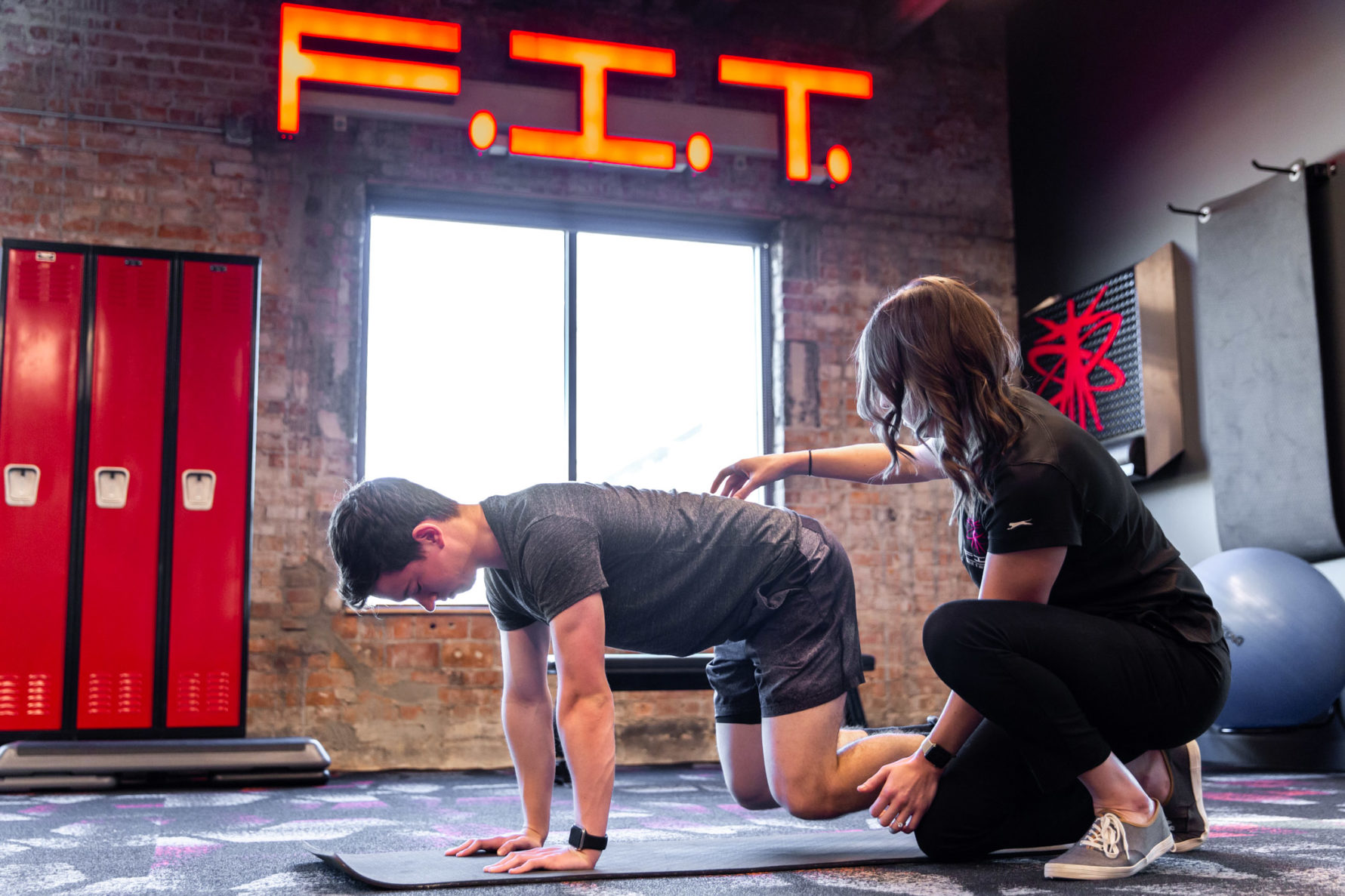
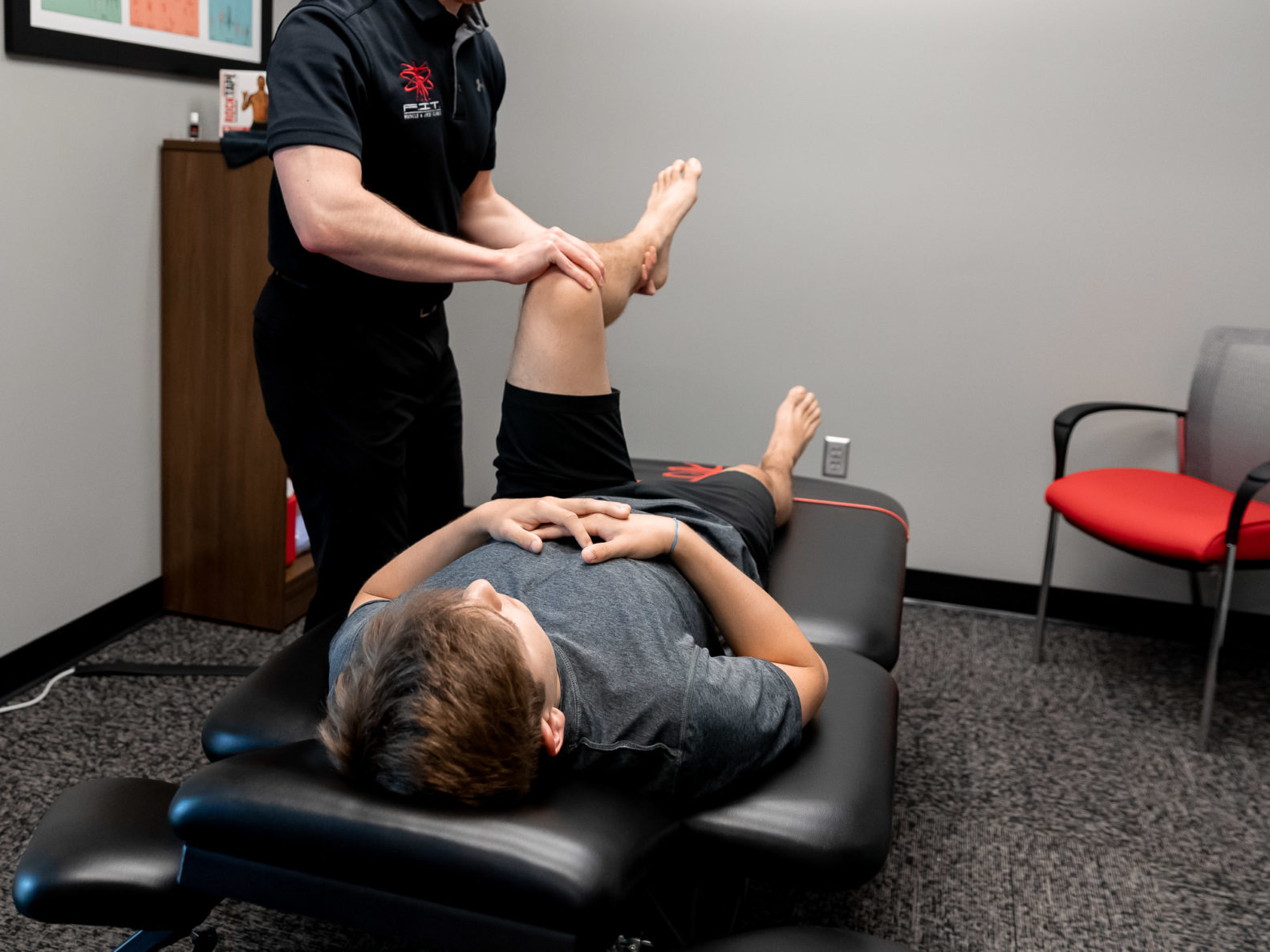
How Post-Operative Physical Therapy Works
Your surgeon will provide you with specific instructions on how to care for the area on which you just had surgery, as well as when they would like you to start physical therapy. Your start date of post-operative physical therapy in Kansas City is dependent upon your surgical procedure as well as how complicated your surgery may or may not have been. You may start physical therapy as soon as two days after your surgery; most patients typically attend post-operative physical therapy two to three times per week—for up to six months in some instances.
The beginning stages of your post-operative physical therapy will emphasize regaining normal range of motion in the joint slowly so as not to disrupt the newly repaired structures, as well as to reduce any soft tissue restrictions. One of the main goals in the first few visits is to reduce your pain to a manageable level. However, understand that with physical therapy there will be discomfort. The therapists at F.I.T. want you to have control of your treatment and will never push your pain to an intolerable level; we are a team, working together to achieve your goals! Once the repaired structures have had sufficient time to heal, we can begin strengthening the muscles and ultimately improving your overall function. This then leads into sports-specific rehab and training to make sure you are ready to return to any high level athletics without risking re-injury.
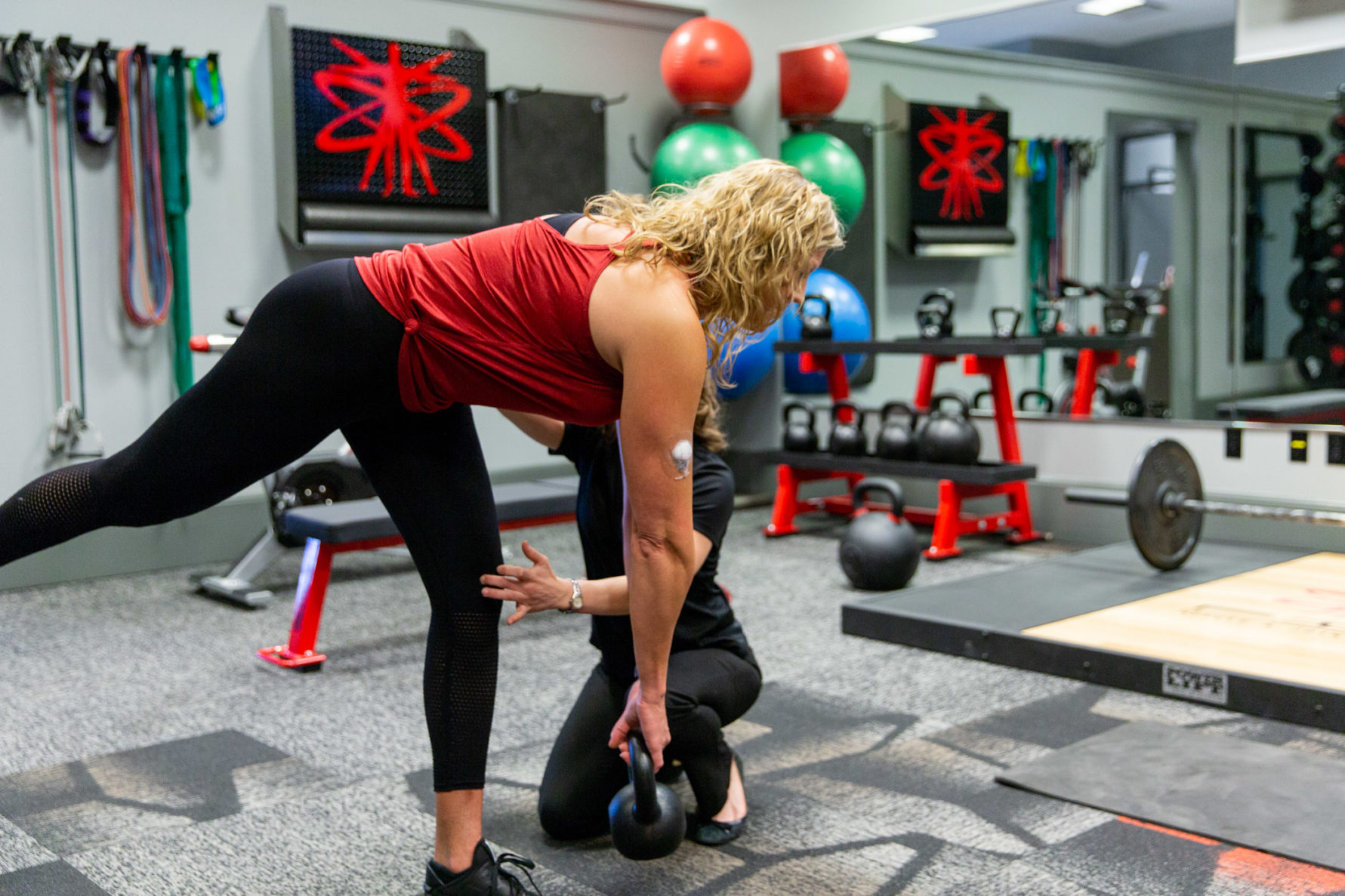
Post-Operative Physical Therapy at F.I.T.
F.I.T. Muscle & Joint Clinic is proud to provide post-operative physical therapy by highly trained therapists who excel in rehabilitating patients following surgical intervention. Many patients will begin physical therapy even before surgery in order to gain full range of motion and strength, which can make therapy after surgery easier. On your first visit, we will discuss what it is you are wanting to get back to, your individual goals, as well as your concerns. We will take measurements during our full assessment and set realistic expectations for your treatment plan.
Throughout your course of rehab, we will continually reassess your progress and adjust our interventions as necessary to make sure you continue to stay on track for your goals and timeline. During your rehab with F.I.T., we will be in communication with your doctor to discuss protocols, progression, or any concerns that may come up. We are here to fulfill all of your pre- and post-operative needs to get you back and better than before.
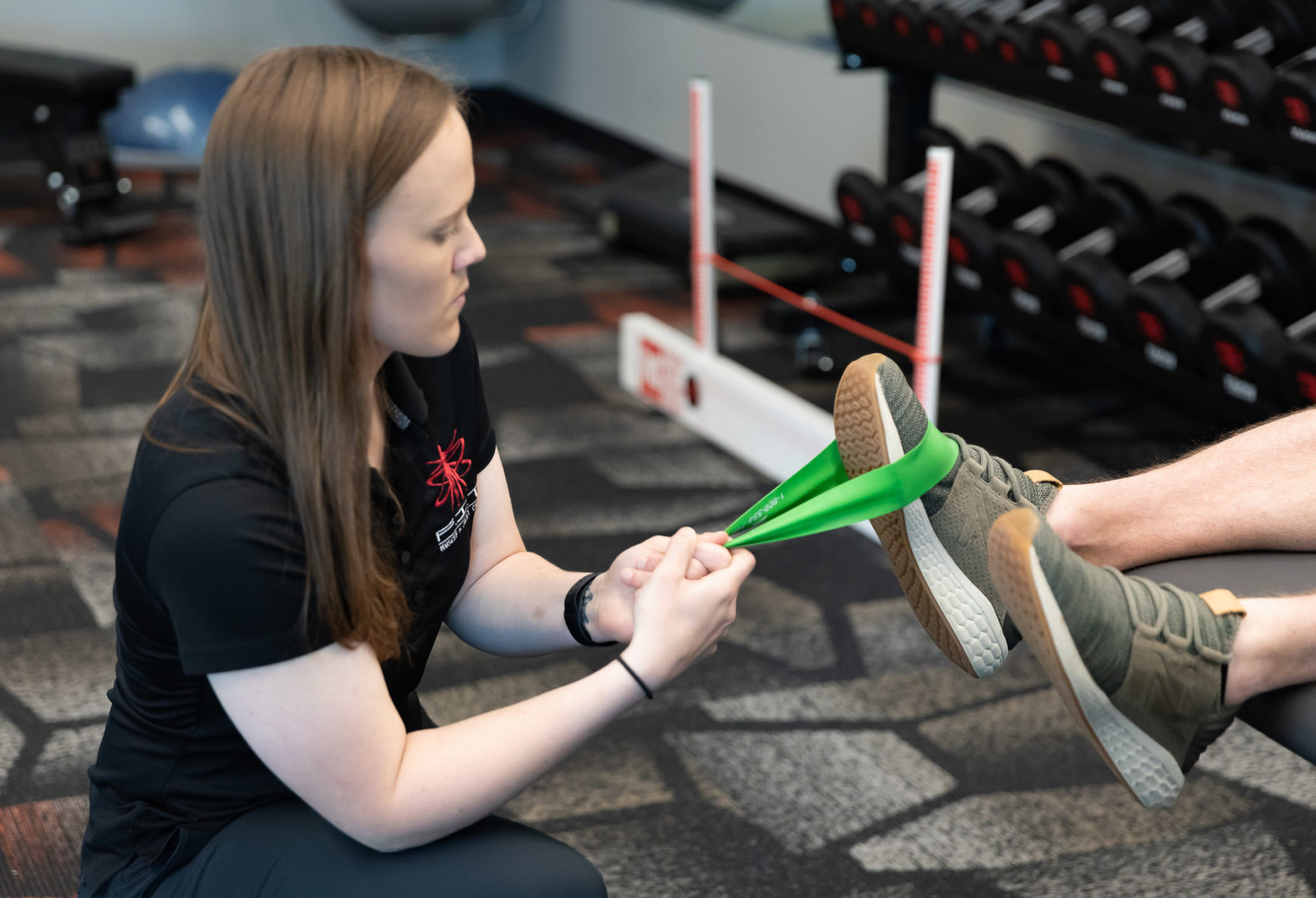
The Importance of Post-Operative Physical Therapy
In some instances, patients do not undergo their prescribed physical therapy treatments simply because they do not understand its importance. Other times, they are afraid that physical therapy will hurt. In reality, visiting a trained physical therapist is often a requirement rather than a recommendation. The outcomes of your surgery and whether or not it’s successful depend on training the body to form proper movement habits. There may be some pain that comes with the treatments, but with our precise care and dedication to our patients, F.I.T. ensures that our patients remain as comfortable as possible.
The joints and muscles require movement to continue to heal after surgery. All joints depend on natural lubrication via synovial fluid. Similarly to how oil lubricates gears to move, synovial fluid lubricates your joints to aid muscle movement. When the body moves, synovial fluid in the area increases, which can reduce friction and help alleviate pain. In addition, movement promotes blood circulation throughout the entire body. That circulation is vital for supplying essential nutrients and oxygen that joints and muscles need to remain healthy. Remaining stagnant can weaken the area, reduce the flow of fluid, and lead to future injuries. In fact, two people who underwent the same surgery could have very different results based on who went to physical therapy and who did not.
For athletes, post-operative physical therapy helps you get back to play faster at an optimal performance level. In many cases, surgery doesn’t mean you have to quit a sport or preferred activity; it gives you a chance to strengthen your body, heal your injuries, and return to doing what you love without pain. However, it is important to be patient with your body throughout the process. Physical therapy isn’t a practice that will give miraculous results overnight. Instead it is a well-studied science that aims to restore pain-free movement and improve your overall health. For some, this may take weeks or months to get there.
Regardless, post-surgery rehabilitation and physical therapy can expedite your recovery, allowing you to regain full, or close to full, functionality of your joints and muscles. Rest is always important, but without some kind of physical therapy, too much rest can actually do more harm than good. A lack of movement can lead to stiffness, increased pain, and limited range of motion. As a result, instead of making a full recovery, you could return to your previous state or find that your injuries don’t improve as you expected.
While post-operative physical therapy isn’t designed to replace your normal visits with your surgeon, they are meant to complement the work your surgeon has performed to promote a full recovery. That means you should always speak to your physician about what he or she recommends. From there, our physical therapists can help you achieve your goals while aligning our treatments with your physician’s requirements.
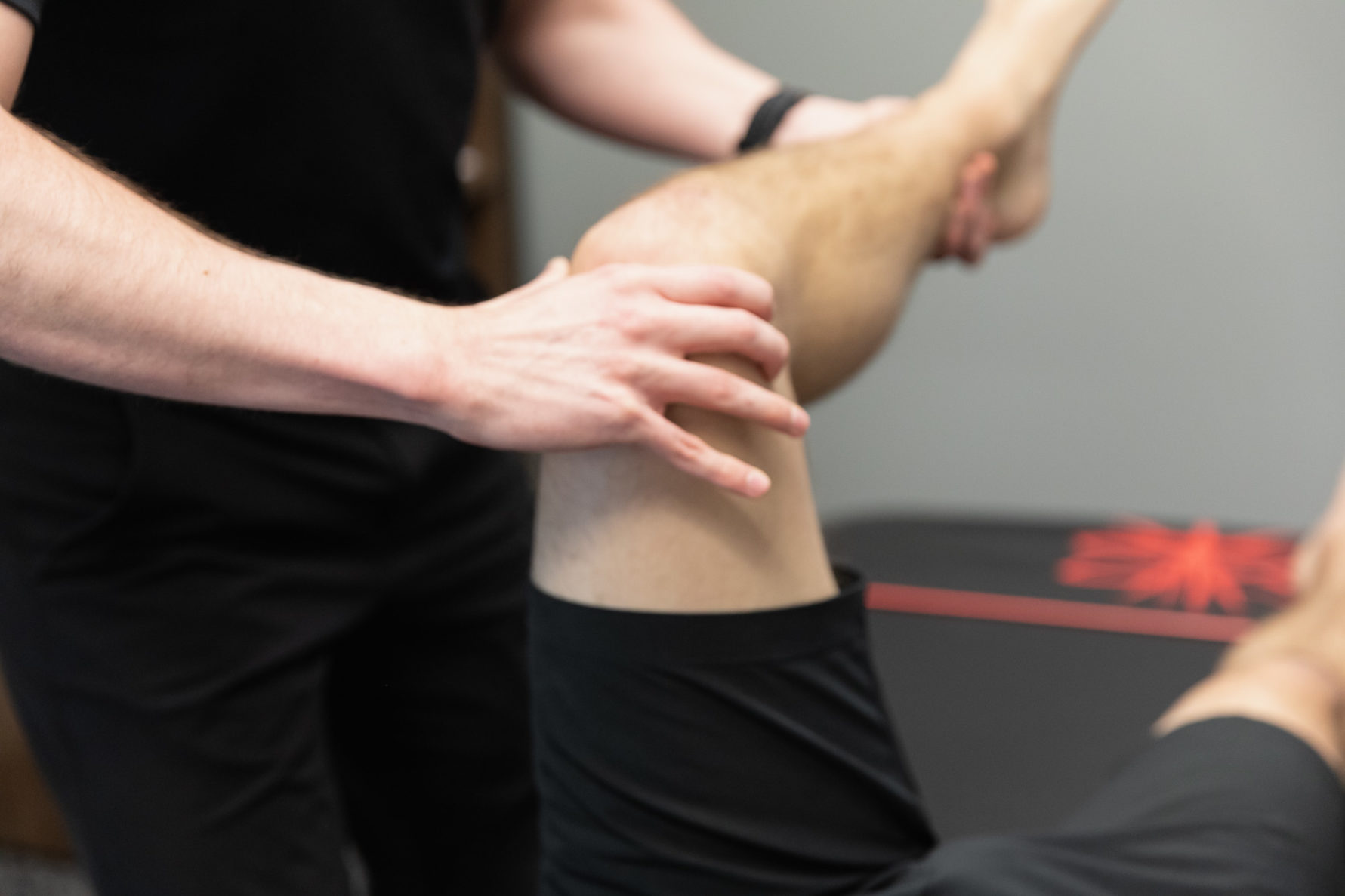
What to expect with post-operative physical therapy
The most important foundation for all of our physical therapy treatments is personalization. We will work with your surgeon to create a customized treatment plan based on your needs and unique motion patterns. Even people who faced the same injuries and surgeries will not have the exact same physical therapy plan. That is because all bodies are different; all motion patterns are different; and we will never provide one-in-the-same treatments for those reasons.
Through our expertise, we provide a variety of treatment options to help your body recover after surgery. We are uniquely equipped with the latest technologies in physical therapy and we stay above the curve on improvements in the field that could better help you. Although the only way to receive a specific plan is through a visit with our physical therapists, a few treatments you may undergo include:
Stretching: Stretching is very important for lengthening the muscles to increase flexibility. Surgery can cause your muscles to become tight, which can limit your natural range of motion and cause pain. The formation of scar tissue also impacts flexibility. In the beginning, you may not be able to stretch on your own, and that is completely normal. Our physical therapists will provide assisted stretching where they move your body for you.
Also as your strength increases, F.I.T. provides stretching exercises that you can perform on your own with supervision that caters to your body. Increasing flexibility can also help every day activities such as overhead reaching, cleaning, and bending forward a lot easier, reducing the pain you feel on a normal basis.
Exercising: Not only do you want to help your joints and muscles heal, you also want to strengthen them throughout the process. At. F.I.T., our physical therapists create exercise routines that can help you maintain and build muscle. For athletes, we can also design sport-specific exercise programs to strengthen the areas of your body most used for your sport.
Depending on your needs, we may utilize light weights, kettlebells, resistance bands, or even Blood Flow Restriction techniques to maximize strength building without heavy loads. We may also focus on strengthening core muscles. The core is an important foundation for all movements, and a weak core could lead to more injuries. Throughout all of our exercises we teach our patients to focus on proper belly breathing to maintain spinal health.
Breaking apart scar tissue: Although stretching can help break up scar tissue, some patients require a little extra care to treat tightness and pain. Soft tissue adhesions are a natural part of the post-surgery healing process; however, when cells clump together, they can reduce flexibility and range of motion.
Our physical therapists utilize a variety of techniques for scar tissue, including Instrument Assisted Soft Tissue Mobilization. With the help of Graston or FAKTR tools, we implement a cross-friction massage, meaning we apply pressure against the grain of the scar tissue. In doing so, we introduce a small trauma, which boosts the body’s healing process. The goal is to promote the healthy formation of collagen fibers so the tissue heals properly.
Frequently Asked Questions
What is a typical post-operative period?
A typical post-operative time period varies from a few weeks to a few months depending on the surgery and the individual. We all heal differently, but we'll be with you from the beginning to the end.
Do you accept post-operative patients?
Yes, our physical therapists would be grateful for the opportunity to guide you through your post-operative rehab in Kansas City.
Can you come to me for post-operative treatment?
Unfortunately no, we cannot come to you. The necessary equipment to help produce lasting results are in our clinics and therefore our therapy sessions must occur there. We will equip you with exercises you can do in the comfort of your own home in between your post-operative physical therapy sessions in Kansas City.
Tell us about your pain.
Take a couple of minutes to tell us about your symptoms and pain areas. Prefer to chat over the phone? Call us for a free phone consultation.
Visit your local F.I.T.
Meet the team at any of our 11 locations: Lee’s Summit, Leawood, Paola, Crossroads, Liberty, Blue Valley, Olathe, Kansas City, Overland Park, Raymore, & Shawnee.

